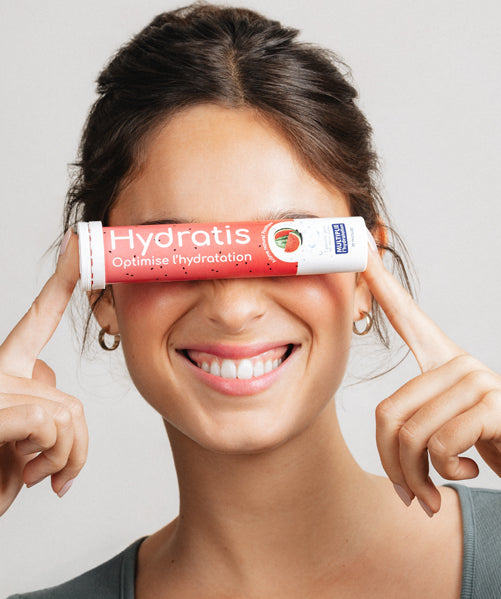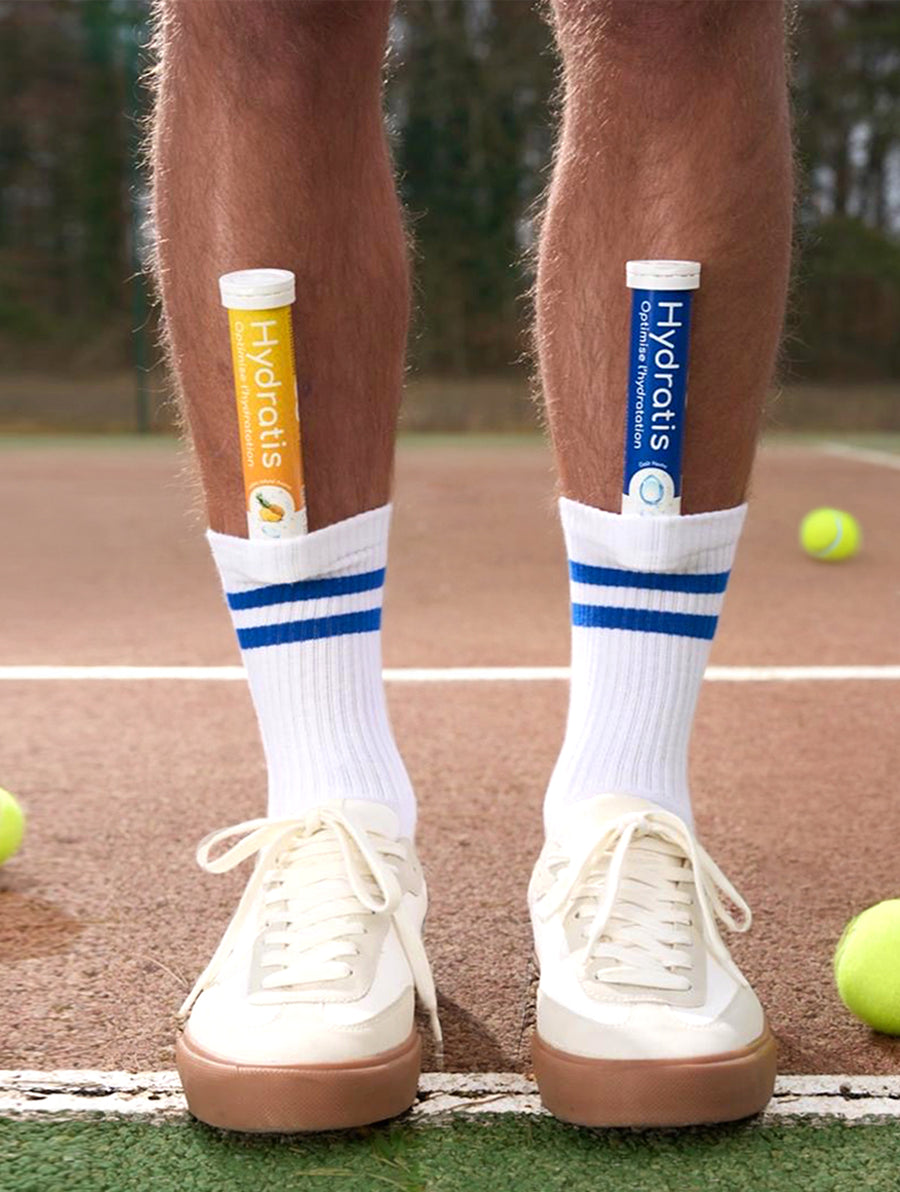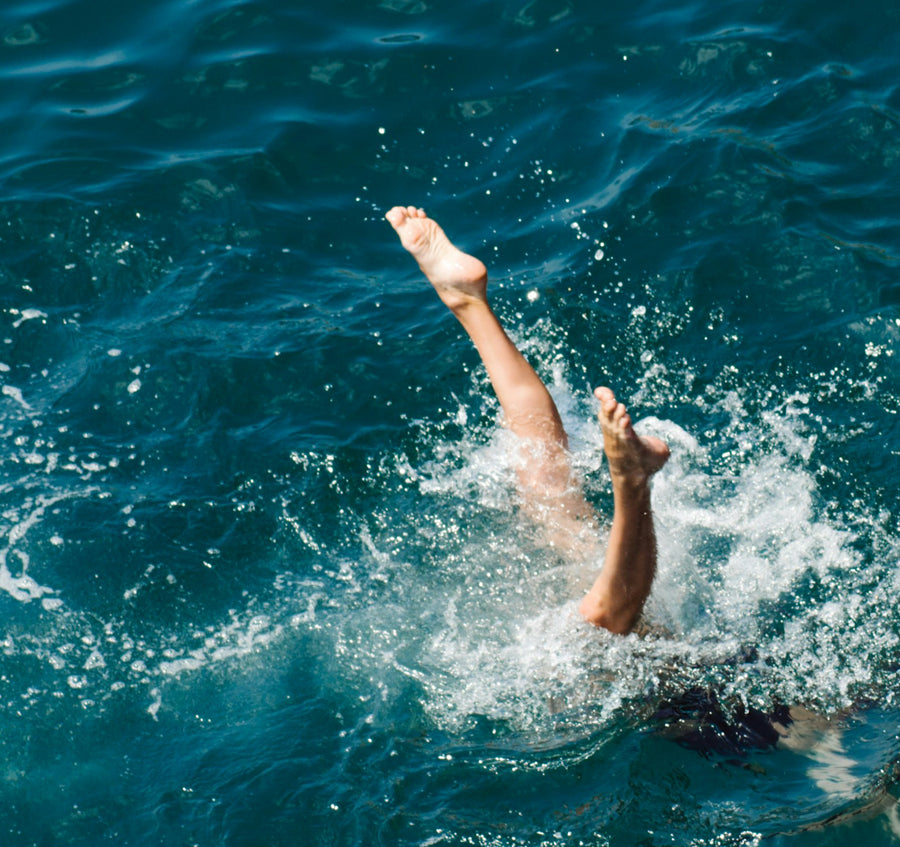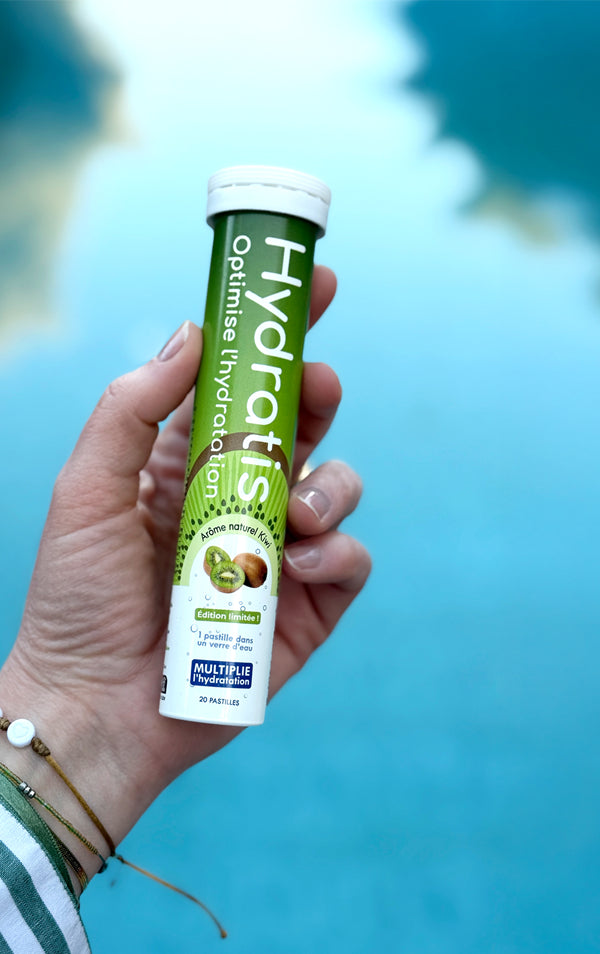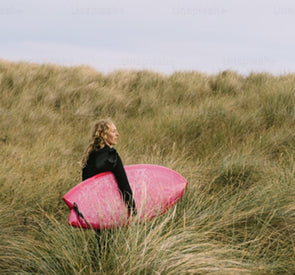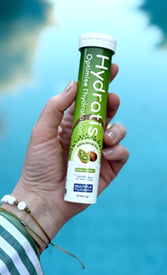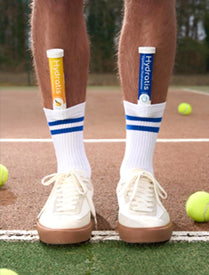During a heatwave , the heat puts the body under considerable strain. During these times, adequate hydration is essential to maintain the proper functioning of your body and preserve your health.
Beyond simply drinking regularly , it is also important to adopt the right habits to avoid discomfort and excessive fluid loss .
In this article, you will learn how to maintain good hydration during a heatwave, how to react to the first symptoms of dehydration, and how to take steps to protect the elderly.
Why is hydration crucial during a heatwave?
When the body is exposed to high temperatures, it regulates its temperature by producing more sweat . This significant water loss , if not compensated by sufficient fluid intake, can quickly lead to dehydration .
In the long term, this can cause hyperthermia (heatstroke ) , characterized by a dangerous rise in body temperature. Only proper rehydration can prevent this risk.
5 tips to stay hydrated during a heatwave
Adopting the right preventative measures helps limit the effects of the heat and keep you feeling great all day. Here are a few tips that will be useful.
Drink enough, and often
To stay well hydrated, it is important to consume water throughout the day , even if you don't feel like drinking.
Opt for small, frequent sips rather than drinking large quantities all at once. This promotes more efficient absorption of the liquid.

Eating water-rich foods
Some foods, particularly fruits and vegetables , naturally contain a significant amount of water . Examples include:
- Cucumber;
- Watermelon;
- Melons;
- Tomatoes;
- Citrus fruits (grapefruit, orange, clementine, etc.).
In addition to hydrating you, they provide vitamins and minerals that are beneficial to your body, especially in hot weather.
Refresh yourself regularly
You can refresh yourself by spraying cool water on your skin and pulse points such as your wrists, neck, inner elbows, backs of knees, etc. Also, remember to take showers whenever possible.
Adapt your physical activities
On days with high temperatures , schedule your work or exercise sessions for the coolest hours. Opt for light activities , take regular breaks , and don't wait until you're thirsty to hydrate.
Opt for clothing made from breathable materials.
Wearing light, loose-fitting, light-colored clothing will help limit the effects of the heat. Breathable fabrics allow the skin to wick away perspiration more effectively.
They also help to reduce the feeling of discomfort and make it easier to maintain a stable body temperature.
What to drink and what not to drink during a heatwave
During this episode, drinking regularly is not always enough to stay well hydrated. The type of drink largely determines its effectiveness.
The best drinks to stay hydrated during a heatwave
To stay well hydrated in the heat, some drinks are particularly suitable:
- Water;
- Mineral-enriched waters;
- Cold infusions or herbal teas;
- Natural juices (grapefruit, orange, watermelon, etc.) diluted .
Drinks to avoid during a heatwave
Although some liquids may give the impression of hydration, they actually increase fluid loss and fatigue. These include:
- Alcohol ;
- Coffee and highly caffeinated drinks ;
- Sodas and very sugary drinks .
Heatwaves and the health of the elderly
Older people are particularly vulnerable to heat, as their bodies react less effectively to temperature spikes and fluid loss.
What are the risks of dehydration in the elderly?
With age, the body's ability to regulate temperature and sense thirst decreases. This puts older people at increased risk of fainting , severe fatigue , blood pressure problems, or even more serious heat-related complications.
Paying special attention to their condition and comfort is therefore essential during hot periods.
How can you encourage an elderly person to drink more?
Here are some tips to use when considering the well-being of our seniors:
- Offer small, regular sips rather than large quantities at once so as not to upset them;
- Vary the drinks : water, cold infusions, diluted natural juices to make hydration more appealing;
- Make drinks easily accessible by placing them within easy reach throughout the day;
- Presenting drinks in an appealing way : using coloured glasses or straws can encourage them to drink more often.
Symptoms of dehydration and heatstroke: when to be concerned?

In cases of extreme dehydration or heatstroke , certain symptoms should alert you.
Signs of dehydration to watch for
To react effectively and prevent the situation from worsening, it is important to recognize the early warning signs. These may include:
- A feeling of unusual fatigue ;
- Dizziness;
- Dry mouth;
- Headaches ;
- From a decrease in vigilance, etc.
Signs of hyperthermia that should not be ignored
Hyperthermia, on the other hand, requires immediate attention. Here are the symptoms to watch for:
- High body temperature;
- Excessive or absent sweating;
- Confusion ;
- Nausea;
- Palpitations;
- Fainting spells.
What should you do if you experience alarming symptoms?
If one or more of the signs mentioned above appear, it is important to act quickly to protect the victim:
-
Move the person to the shade or to an air-conditioned place;
-
Give her suitable drinks slowly if she is conscious and able to swallow;
-
Cool the person down with fresh water or use a fan;
-
Contact a doctor immediately if symptoms persist or worsen, especially if confusion or loss of consciousness occurs.
Hydration, the key to your well-being during the heatwave
Proper hydration during a heatwave is essential if you want to maintain your well-being and avoid discomfort (hyperthermia, dehydration, etc.).
By combining regular consumption of appropriate fluids and a few simple actions, you can not only limit the effects of the heat, but also maintain your comfort and vitality.
Bibliography
Centers for Disease Control and Prevention. (2024, June 25). Heat and older adults (aged 65+) . https://www.cdc.gov/heat-health/risk-factors/heat-and-older-adults-aged-65.html
Hopkins Medicine. (nd). Dehydration and heat stroke. https://www.hopkinsmedicine.org/health/conditions-and-diseases/dehydration-and-heat-stroke
Mayo Clinic. (2021, June 18). Staying hydrated, healthy during extreme heat. https://sportsmedicine.mayoclinic.org/news/staying-hydrated-healthy-during-extreme-heat/
Schols, J., et al. (2009). Preventing and treating dehydration in the elderly during hot weather. Journal of Nutrition Health & Aging, 13(4), 281–284. https://pubmed.ncbi.nlm.nih.gov/19214345/
SeniorCare Inc. (2025, July 27). Keeping hydrated in hot weather. https://seniorcareinc.org/keeping-hydrated-in-hot-weather/
StatPearls. (2022). Adult dehydration . https://www.ncbi.nlm.nih.gov/books/NBK555956/
Times of India. (2025, May 21). Aging and dehydration: 5 reasons why the elderly are more susceptible . https://timesofindia.indiatimes.com/life-style/health-fitness/health-news/ageing-and-dehydration-5-reasons-why-the-elderly-are-more-susceptible/articleshow/121316454.cms
University of Arizona Health Sciences. (2024, July 3). Hydration is key to preventing heat-related illnesses and heat-related deaths. https://directorsblog.health.azdhs.gov/hydration-is-key-to-preventing-heat-related-illnesses-and-heat-related-deaths/
World Health Organization. (2024, August 27). The importance of hydration in older people during extreme heat. https://www.clinicbarcelona.org/en/news/the-importance-of-hydration-in-older-people-during-extreme-heat
